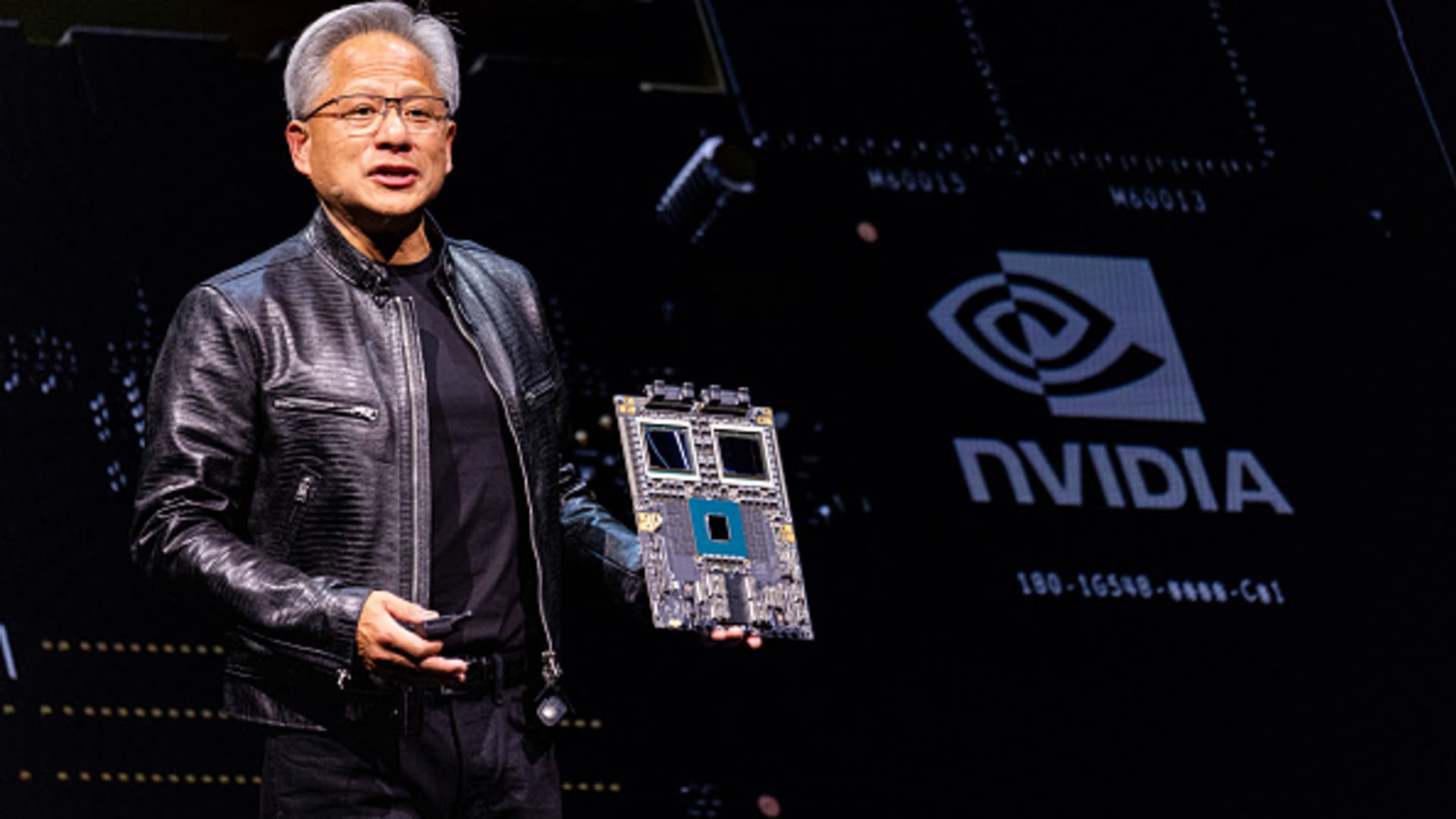Jensen Huang, co-founder and CEO of Nvidia, speaks during an event in Taipei, Taiwan, on June 2, 2024.
Annabelle Chih | Bloomberg | Getty Images
Nvidia is joining the storied Dow Jones Industrial Average. We learned on Friday the chipmaker would be added to the blue-chip index, ending months of speculation that began in May when Nvidia split its stock 10-to-1.
What kind of influence will Nvidia have on the 30-stock index when it joins before the bell this coming Friday?
Over the past two years, as AI has become a dominant theme in boardrooms, Nvidia has emerged as one of the world’s largest companies. It’s even surpassed Microsoft in market capitalization and is vying with Apple to be the biggest stock in both the S&P 500 and the tech-heavy NASDAQ 100.
Nvidia, 1 year
Keep in mind that the Dow is a price-weighted index, so a company’s market capitalization doesn’t matter in terms its effect on the index. Instead, share price determines how much a single stock can move the Dow on a daily basis. That’s why UnitedHealth, at a closing price above $567 per share, often has the largest impact on the index. Goldman Sachs, with shares priced over $500, also frequently ranks among the top movers.
As of Friday’s close, Nvidia will be the 21st most expensive stock in the Dow, while Intel, which is being removed from the index, is the least expensive at just over $23.
A $1 gain in UnitedHealth would represent only a 0.18% change for the stock, compared to a significant 4.31% move for Intel. For Nvidia, a $1 change would be about 0.74%. Despite these percentage differences, the impact on the Dow remains the same. A $1 move in any Dow stock translates to roughly 6.6 points on the index.
But it’s not just share price that matters; volatility is also a key factor. By considering both share price and historical volatility, we can estimate each stock’s potential influence on the index. According to a CNBC analysis of FactSet data, Nvidia would rank as the eighth-largest influence on the Dow based on its share price and recent volatility.
Our analysis suggests UnitedHealth has the largest expected daily movement in the Dow, around $8.40 per day, due to its high share price. Coca-Cola, on the other hand, typically moves just $0.50 daily, reflecting its lower share price and steady performance. Nvidia’s expected daily move is around $4.40, placing it between Amgen and American Express, whose per-share prices are more than twice that of Nvidia. Nvidia’s volatility compensates for its relatively modest share price.
This all highlights some of the limitations of price-weighted indexes: Nvidia is a key player in today’s market, yet it likely wouldn’t have been added to the Dow before its stock split earlier this year. And while per-share price once held significance, fractional trading and ETFs have rendered that importance largely obsolete. Only in options trading, where contracts tend to be of 100 shares, does per-share price really matter anymore… there and in the Dow Industrials.










